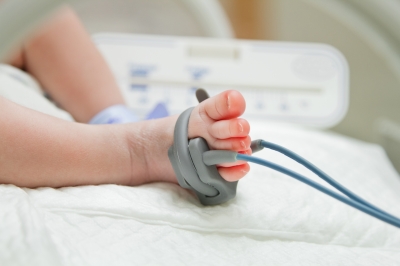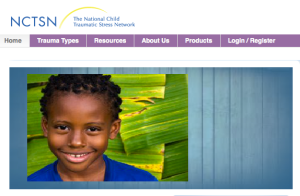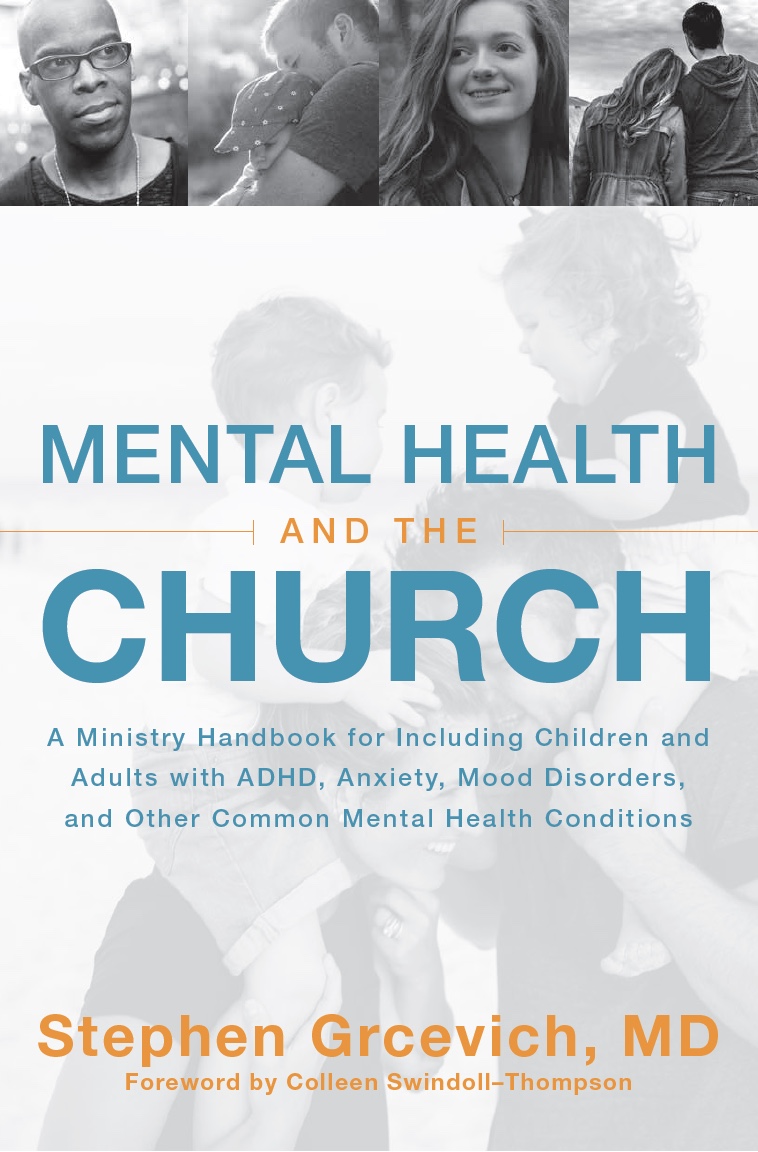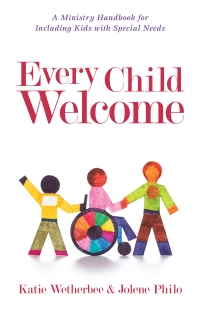 Some things parents never forget. Like the first time a mother holds her newborn child. Or the first time a baby belly laughs at a father’s antics.
Some things parents never forget. Like the first time a mother holds her newborn child. Or the first time a baby belly laughs at a father’s antics.
But when I think of our son’s early days, an unpleasant memory comes to mind. Our baby’s wince of pain when the nurse took him–bristling with drainage tubes, feeding tubes, IVs, and monitor wires–and placed him in his daddy’s arms.
Newborns Don’t Feel Pain
“Should we really be moving him?” my husband asked. “Wouldn’t it be better for him to lie still in his bed?”
“No,” the nurse assured us. “He needs the security of your arms more than anything right now. Besides, newborns don’t feel pain like they do when they get older. That’s why your baby isn’t on pain meds.”
I looked at the two inch vertical incision on our baby’s stomach and at the horizontal one that began under his armpit and ended at his spine. I looked at my son’s drawn mouth, the frown lines on his forehead, and the strain in his eyes.
“Are you sure?” I questioned the nurse…and later the surgeon, the pediatrician, and the GI doctor. “Are you sure he’s not in pain? Are you sure this won’t affect him emotionally?”
He Won’t Remember
One after another, well-meaning health care professionals gave the same answer.
“He won’t remember.”
“He won’t remember.”
“He won’t remember.”
Our baby was 26-years-old before a mental health care intake counselor confirmed our suspicions.
Our newborn son did feel pain during and after surgery.
He did remember.
He remembered a lot.
But because the experiences were pre-verbal, he had no words to describe how he felt.
Those memories were the source of his emotional and behavioral issues during adolescence.
Your Son Has PTSD
“Your son has PTSD.”, the woman said.
My heart sank.
Then she added, “And we can help him.”
At first, I didn’t believe her or the other counselors at the clinic. “Everyone says they can help,” I explained. “But nothing changes.”
“We can help him,” they repeated.
Because our son had nothing to lose and everything to gain,
because my husband and I had no Plan B,
because we all sensed God at work guiding us to this place,
we stayed.
Our Son Still Has PTSD
One week later, our son had his life back. He was whole in a way he’d never been before. He was ready to move forward with his life, and he did.
Our son still has PTSD.
He always will.
But it no longer controls him.
Rather, he controls it.
Because he now has words to explain what he experienced in the first hours and days of his life. When those emotions try to whisper fear, he speaks back truth. He moves on.
PTSD Awareness Is Growing
Awareness of PTSD is growing. Churches talk a lot about adults with PTSD: soldiers returning from war, victims of natural disasters, children and teens who experience physical, sexual, or emotional abuse.
But very few churches talk about the babies, special needs babies, who also suffer from PTSD.
Because we don’t want to believe they feel pain.
Very few churches talk about children already traumatized before birth or children traumatized by direct or observed trauma.
Because we good church people don’t want to believe they remember.
But children do remember.
My son remembered and suffered for 26 years.
Then, in one short week, with the right treatment, his life was given back to him.
No child should have to suffer for 26 years when effective treatments exist. My heart breaks when I think of lives ruined, families torn apart, teens and young adults who feel like failures because they want to change but can’t. Such would have been our story had God not intervened and led us to the talented mental health care professionals who healed our son. So church leaders, be aware of these truths:
Babies in the womb can be traumatized.
Newborns do feel pain.
Infants can remember trauma.
Children can be traumatized when they observe a loved one suffer trauma.
That trauma can develop into PTSD.
Effective treatments for PTSD do exist.
Children as young as 3 can be treated.
If you think your child may have PTSD, seek treatment now.
Hope exists!
Jolene Philo blogs at Different Dream for My Child
Updated July 11, 2015
***********************************************************************************************************
 Key Ministry offers a resource page on Trauma and Kids to pastors, church staff, volunteers and families. The resource page includes links to all of the posts from our Fall 2013 blog series, links to resources from Jolene Philo, the National Child Traumatic Stress Network and Empowered to Connect. Check it out today and share the resource page with others who would benefit.
Key Ministry offers a resource page on Trauma and Kids to pastors, church staff, volunteers and families. The resource page includes links to all of the posts from our Fall 2013 blog series, links to resources from Jolene Philo, the National Child Traumatic Stress Network and Empowered to Connect. Check it out today and share the resource page with others who would benefit.




Thanks, Jolene! Well-written on a little discussed reality! Same questions and same answers we got many years ago when out NICU baby was having his share of procedures!
LikeLike
Thankfully, perceptions are changing. But still, some NICU parents are still told their babies don’t feel pain. Ouch!
LikeLike
Hi. I am wondering what kind of initual treatment they gave your son at the clinic? One week is a fast turnaround! And how long ago was this? Is he continuing treatment of any kind since that initial week?
LikeLike
I would also be interested in the intervention used. To see this distinct turn around in one week with PTSD is remarkable. Any information would be appreciated. Thank you.
LikeLike
Debby, I’m so sorry this reply is so late. Please see the reply to Nicole’s comment above which will answer your concerns.
LikeLike
Nicole, our son was treated at Intensive Trauma Therapy, Inc in Morgantown, WV. Their website is http://www.traumatherapy.us. They train people from around the country, so their locator may help you find someone in your area.
Yes, a week is a fast turn around. They also treat patients who have had multiple traums for 2 weeks when warranted. It is a fast turn around, but they work intensively in a one on one setting for 6 hours a day. They consider a week of their outpatient treatment the equivalent of a year of 1 hour weekly counseling sessions because they don’t have to spend 20 minutes of the hour getting the client ready for therapy and then doing 20 minutes of therapy before spending the last 20 minutes stabilizing the client.
They use a variety of techniques including guided imagery or hypnosis, art therapy, creating a narrative, and video therapy to help patients access those implicit memories that are non-verbal and lurking in the right brain. They also teach clients a dialoguing technique to use post-treatment to continue integrating traumatized “parts.” You’ll find more information at their website.
My son was treated in 2008 and has done very well since then. Our son-in-law was treated in 2010 and has done well, too. Both have had occasional “tune-ups” with counselors where they live. Neither have needed continual counseling or medication.
If you have more questions, please ask away!
LikeLike
I got very excited when I saw what the treatment was and WHERE it was. I live in West Virginia and have a foster daughter who I’m sure has PTSD and would benefit from this type of treatment. THEN I saw that it’s $5,000/week (NOT including food, lodging, etc.) and is not covered by insurance, Medicare, or Medicaid. So…basically if you’re wealthy there’s a treatment that can work for everyone. IF you’re wealthy. For the rest of us…too bad, our kids will have to suffer. It’s already so hard to find help for kids in foster care, and then all of the best places don’t take her medical card.
I couldn’t find a locator on their website to see if there was anyone closer to me who could do this kind of treatment (or even something like it). I sent an email to them, but haven’t heard anything back. Being only a couple hours from Morgantown, I would think there would be some options in my area…
LikeLike
I have always suspected this with my now nine year old. Please share how we can find this treatment! Also can you give any info on HOW they treat a person in one short week? Thanks!
LikeLike
oh, yes he will remember! We have adopted through the foster care system and our children remember a lot! Even if the the trauma happened preverbally their body will remember the pain and they will be triggered. I write about some of our experiences in my blog.
LikeLike
What is your blog, Sandy?
LikeLike
Yet, parents willingly circumcise their baby boys with no anesthesia, because, “They won’t remember it”……I was told the same thing. Why is it permissible to hurt someone as long as they won’t remember it? ( or you THINK they won’t remember it……). Obviously, in the NICU treatments that hurt are often necessary. I would demand pain meds for my little one. They used to do surgery on newborns without anesthesia as well. I pray we have moved beyond that at least, but pain meds should always be the norm.
LikeLike
Pain meds are much more the norm now, Wendy. Babies born with the same condition as my son are now given pain meds during surgery and put into a drug-induced coma for a period of days or more during recovery so they will heal without moving around and aovid painful internal lesions caused by scar tissue. Much progress has been made! Still parents need to be alert and ready to intervene if that’s not the case.
LikeLike
[quote]Pain meds are much more the norm now, Wendy.[/quote]
That still doesn’t make it OK to amputate part of a baby’s perfectly normal, natural, healthy, functional genitalia.
LikeLike
I do hope that every mother reading this will realize how circumcising relates to the topic. No baby should have part of there genitals cut, male or female. It is a purely cosmetic surgery; the child can always choose to have it done later, he can not have it undone. Let him choose.
LikeLiked by 1 person
Well put, Rachael.
LikeLiked by 1 person
I think the one week turnaround refers to a starting point. Much like the point of salvation working towards sanctification. As she said her son will always have PTSD as people will always have sin, but are learning and working towards an end of both.
LikeLike
That’s a good analogy, Donald. The change was significant for our son in 2008 and our son-in-law in 2010. They do need occasional therapy, but so far no medication. And they are able to see when trauma is causing troubling behavior and how to address it. That sounds much like sanctification at a definitive point and working toward the end of sin for all of life.
LikeLike
What would you suggest as the first step for a Christian suffering from PTSD and looking for help?
LikeLike
Hi Molly,
What a great question. My first suggestion is that you address the issue of PTSD and mental illness as you do physical illness. When your body is sick, you go to a health care practitioner. When your brain is sick, you go to a mental health care practitioner. Therefore, you should go to a psychologist, psychiatrist, or licensed mental health care counselor to have your condition assessed and diagnosed. Then, if the diagnosis is PTSD, look for a therapist who has specialized trauma training. Call the clinic, ask to talk to the therapist about the treatment offered, ask for references if you wish, and make an appointment with someone you feel comfortable with. If you visit that therapist a few times and don’t feel you’re making progress, go elsewhere.
Best wishes!
Jolene
LikeLike
Could you tell what the “effective treatment for PTSD” was, please.
LikeLike
Hi Michel,
Jolene described the treatment in response to an earlier comment. THere’s also a link to the facility they used.
LikeLike
What are some early signs of PTSD? I am just curious as my son who is now 19 months spent some time in the NICU.
LikeLike
This came across my iPhone screen tonight & I read this article. I do believe God meant for me to read this. Where can I find additional information? Thank-you!
LikeLike
Sha and Cassie…Jolene posted a link to the treatment center in West Virginia where her family found help for their son. We did a blog series on trauma and kids in 2013 that you can find here. The National Child Traumatic Stress Network is also an excellent resource for information on PTSD ands all of its’ manifestations.
LikeLike
This is so true!!! As a pediatric NP I always make sure our babies get their pain meds post-op, even if I fight other providers. Also my son has had the effects of PTSD (3 open heart surgeries), and we are finally getting the right treatment also.
LikeLike
Where can we go to find help for our son that was adopted at age 2 from china and has had 18 surgeries in 8 years that we suspect suffers from PTSD?
LikeLike
How do you find someone that can help treat PTSD for your child?
LikeLike
I am thankful to say that our pastor and his wife have been part of a training that teaches about in uterine trauma and many of us have been trained in praying with those who have been traumatized like this.
LikeLike
What was the treatment?
LikeLike
Dr. Karyn Purvis has six things that define “children from hard places.” While her primary work is on adopted children, a lot of non-adopted children fall into this too and parents should consult her site for the resources she offers and read The Connected Child. Empowered To Connect is the Facebook. Listen to this: http://empoweredtoconnect.org/children-from-hard-places-what-everyone-needs-to-know/
(I am an international adoption social worker)
LikeLike
Hi Angela,
We’re big fans of Dr. Purvis’ work as well and promote it to interested families.
LikeLike
Babies in utero can feel & react to domestic violence or any other kind of trauma, including separation from parents (hospital stay). The memory remains in the unconscious. And it can come out at normal transitions, such as when they start school (5-ish), when they start to individuate (pre-teen/teen), around 16, then around 18/adulthood. Great article. More medical professional, teachers, parents, anyone who works with kids need to know & understand this.
LikeLike
What kind of treatment? My son was adopted from foster care. We experience alot of emotions daily. Was hoping adhd medicine would help, counseling, but nothing has seem to help with the display of out of control emotions. He has 2 sisters also adopted from foster care. We haven’t seen any affects of the reason they were olaced in foster care to begin with, but has the emotional toll of remebering life before us.
LikeLike
Pingback: He won’t remember: Children and PTSD…Jolene Philo | Daily Medical Research
Do you know that some 3 million baby boys undergo surgery without anesthetic in the U.S. every year, in one of the most excruciating surgeries, the most frequently performed in the U.S. – circumcision within the first 3 days of life. MRI studies have shown trauma to the brain from which the baby does not recover. Millions of American men suffer from some level of PTSD as a result. I am so sorry to hear of your son’s serious surgery as an infant and the resulting PTSD – and I am so grateful to hear of his treatment. Please also get the message out that routine infant circumcision has to end. No more cutting of healthy genital tissue!
LikeLike
I’m curious to know what treatment he received. My daughter witnessed much verbal and emotional abuse directed at me by her father, my exhusband. And she received much of it herself from him and his second wife. She has struggled every day of her short 16 years. Therapy has kept her alive, but I would love to see her thrive.
LikeLike
What is the treatment? And in only one week? Our son had multiple, painful procedures in hospital in his first 6 years and I believe this has effected his behaviour. How can we best support him?
LikeLike
Hi Toni,
Here’s a post Jolene wrote for us last fall in which she discussed treatment alternatives…hope this helps!
LikeLike